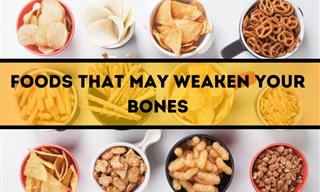1. Nuts
Apart from being the healthiest snack imaginable, nuts are also among the healthiest foods, period. They contain plant protein, plant fats (including omega 3 fats), fiber, and different minerals and vitamins (such as B vitamins, magnesium, and calcium) all in one compact package. Fiber is important for older adults, as it helps boost the digestion, which tends to slow down with age. It is also beneficial for decreasing gut inflammation and managing cholesterol levels, so an adequate fiber intake is crucial as we age.
Some of the best nuts to consider for seniors are almonds and pine nuts, which are known to boost gut health, prevent or halt cataract progression, promote eye health due to high lutein content, and decrease the risk of chronic diseases. Another excellent choice is walnuts, which are known to promote brain and cognitive health. For more information on these and other nuts and their nutrient benefits, read our previous article titled The 10 Healthiest Nuts and Their Remarkable Health Effects.
2. Seasonal fruit and colorful vegetables
Colorful fruit and vegetables offer a myriad of various health benefits, and sticking to seasonal varieties will help make sure you get a variety of those at the best price and least possible amount of added harmful chemicals. Apart from providing you with minerals and vitamins, fruit and vegetables are also full of antioxidants, which can prevent and reverse age-related free radical damage, which is an important contributing factor for chronic diseases and cancer. Many fruit varieties, such as raspberries and asparagus, for example, are also rich in fiber.
You can also consider adding antioxidant-rich spices, such as ginger, turmeric, cinnamon, and chili pepper to your diet. These foods have been associated with reduced joint inflammation, a lower level of inflammation throughout the body, and have potential therapeutic benefits for your brain health, cardiovascular health, weight loss, and aging altogether. So, the more colorful fruit, vegetables, and spices you eat, the better.
3. Lentils and other legumes
Apart from having an excellent nutrient profile, legumes are also known for their ability to boost cardiovascular health, help stabilize blood sugar levels, and have other noteworthy health benefits we have previously covered in the article 9 Amazing Health Benefits of Beans. With age, doctors recommend staying away from red meat and fatty meats, so legumes will be able to provide you with the B vitamins and proteins that are otherwise difficult to get from a plant-based diet.
Lentils in particular are also rich in iron, a key mineral that helps our blood cells carry oxygen to the cells. A lack of iron causes a condition called anemia, associated with feeling tired and lethargic. Just 1 cup of lentils contains 37% of your daily needs of iron.
4. Fatty Fish
As you age, your food preferences should ideally exclude or minimize red meat. This means that you ought to focus on fish, lean meats, and plant foods like tofu and legumes and as your main, if not only, source of protein. An obvious candidate is fatty fish varieties, such as sardines and salmon, which contain a cocktail of protein, vitamins, iron, and omega-3 fatty acids.
The latter is especially important and hard to get from food. Omega-3s, as you likely know, are capable of reducing the levels of beta-amyloid, which is the substance of which plaques that cause Alzheimer's are made of. Apart from that, these fatty acids are also capable of preventing inflammation and slowing down the progression of macular degeneration, a major cause of poor vision among the elderly.
Both fresh and canned food will do the trick, so include some fish in your diet at least once a week to keep your brain healthy and the rest of your body strong and energized. Flaxseeds, soy, walnuts, and canola oil also contain omega-3 fats.
Lastly, it's also important to note that fish is an excellent source of vitamin B12, a vitamin many older adults are deficient in, as the body's ability to absorb the vitamin from food decreases with age.
5. Spinach and other leafy greens
Everyone should eat plenty of leafy greens, really, but it's especially important as we age. Like some nuts, dark green leafy vegetables like broccoli, kale, and especially spinach are rich in lutein, a nutrient that has been proven to prevent macular degeneration. Other lutein-rich foods are egg yolks, grapes, and oranges.
Apart from lutein, though, leafy vegetables are also a good source of vitamin C, vitamin K, antioxidants, and fiber, so, like all of the items on this list, they will benefit your health and wellbeing in many different ways. Finally, like oatmeal, some greens are often fortified with calcium, another nutrient many of us are deficient in.
6. Whole grains
Instead of white rice, white flour, and other processed grains (and the product they are made of), older adults should opt for fiber-rich whole grains, which will benefit digestive and cardiovascular health, and help prevent blood sugar spikes and hypertension.
Today, a wide variety of whole-grain pastas and cereals are also available in supermarkets, as are many nutrient-dense whole grains that have many health benefits like quinoa and buckwheat, so don't think that your diet will be reduced to brown rice and dark bread. Some grains and oats are also an excellent source of magnesium, a mineral that many seniors are deficient in. Just one serving (1 oz or 28 g) of buckwheat contains 16% of the daily intake of this mineral.
Magnesium plays a role in 300 different processes in the human body, keeping your bones, heart, and immune system in top shape, among others.
7. Bananas and other potassium-rich foods
Not only colorful fruit, but also bananas can be beneficial for older adults if consumed in moderation. This is because many older people do not get the recommended 4.7 g of potassium a day, which is crucial for blood pressure reduction, strong bones, and the prevention of kidney stones. The humble banana is an excellent source of potassium, providing 400 mg of the mineral in one fruit. Other good sources of potassium are potatoes, avocados, and pistachios.
Apart from a high potassium content, bananas are also a neutral food that will aid those with sensitive stomachs, which is why it's often one of the first foods allowed for those who suffer from food poisoning or other digestive issues. Finally, bananas also contain a goon quantity of manganese, which plays a role in metabolism and immune health.
8. Low-fat dairy and meat
Protein is a must-have in everyone's diet, but it's crucial for older adults to eat plenty of it in order to keep their muscles and other tissues strong and prevent muscle degeneration. However, dietitians point out that seniors must opt for low-fat meat, such as chicken breast, fish, and dairy instead of red meat, as we've mentioned above, but this is not the only reason why you should eat more dairy.
One of the important minerals many seniors are deficient in is calcium, which is known for its role in bone and dental health, but it is actually also necessary for your heart, nervous system, and muscles. We need 1200 mg of calcium a day, and the easiest way to reach that goal is by eating lean dairy like ricotta cheese, yogurt, and cottage cheese, containing about a quarter of your daily calcium needs in one serving.
However, if you're lactose intolerant, getting enough calcium can be tough, if you don't know what to look for, that is. This is why many milk substitutes, such as oat or almond milk, are fortified with calcium. In addition, though, lactose intolerant individuals can also get calcium from fish, dark leafy greens, and beans.
Do keep in mind, however, that you need vitamin D to absorb the calcium (1,000 mg daily, to be precise), which can be more difficult to get as you age. Luckily, vitamin D is also present in dairy, fortified plant milks, oatmeal, and fish.
Found this article useful? Why not share it with others?
 Go to BabaMail
Go to BabaMail






























